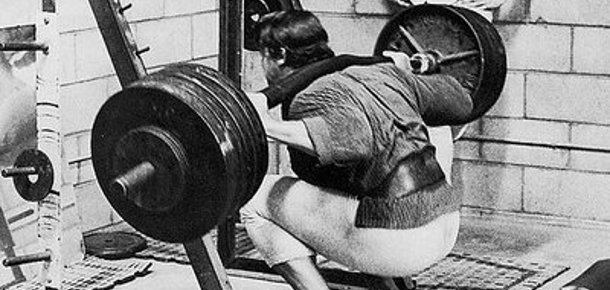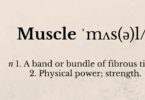But how many things can you do that will legitimately improve your quality of life in almost every area? That will make you a tougher, more capable, self-reliant person, confident in your ability to make plans and stick to them, and to push through adversity when you can’t find creative ways around it? Not all that many: an hour isn’t long, and your office probably isn’t near the Shaolin monastery or the Eiger, and anyway those places are once-in-a-lifetime sorts of trips, to be embarked on with a bit of forethought and dedication. So what can you do, on any given lunchtime, that will make your life better?
There are probably a handful of legitimate answers to this question. Here’s one of them:
Lift weights.
Lifting weights teaches you almost every skill you need to succeed in almost any area of life. At the most basic level, you have to overcome your fear and actually get in the gym in the first place, so there’s that. Then you have to actually lift something heavy, which can be daunting in its own right (side note: barbells are better than dumbbells, because you have to treat them with respect – if you‘re strong enough you‘ll be able to chuck most dumbbells around, whereas even an unloaded barbell needs to be handled appropriately so that you don’t throw it through a mirror). Then you start adding weight, and the magic starts to happen. After a few weeks you can do something you couldn’t before, and it is entirely down to your own efforts – showing up, doing the work, and then doing it again and again and again.
It gets better.
It doesn’t matter how strong or weak you are when you start lifting – at some point, linear periodization, or just chucking extra weight on the bar, isn’t going to cut it any more. At that point, you need to make a plan – perhaps you‘ll get one from the internet at first, but hopefully you‘ll eventually make one on your own, tweak things, experiment, see what works and what doesn’t. You‘ll start to pay more attention to little things like recovery and sleep, because it all means more weight on the bar. You‘ll have some sessions where you can’t believe how well things go, where the weight just flies up and you come back after lunch with a grin on your face that your colleagues don’t understand. You‘ll have other sessions where nothing works, and the bar won’t move, and you come back dejected. And, of course,you‘ll have days in between where you have to grind through the reps, tear the skin off your hands, and get through the afternoon on nothing more than strong black coffee and aggression.
One day, hopefully, you‘ll realise that you‘re pretty strong for your size – maybe stronger than most of your gym, and certainly stronger than the thousands of people you pass in the street every day who are going through their lives with the absolute minimum of physical effort.
But that isn’t the point.
The idea that it takes 10,000 hours to get good at anything is pretty discredited now. Anders Ericsson, the man whose research Malcolm Gladwell has made a small fortune from, has denied that it’s the conclusion of his work, and anyway Gladwell is largely talking about the very elite of the elite, the best chess and violin players in the wordl, since 10,000 hours is a ludicrous amount of time to spend doing anything. What isn’t discredited is that practise, much more than talent, is the best way to get good at doing anything – and this is never more true than in the sphere of weightlifting. In lots of fields of endeavour, the correlation between the effort you put in and the rewards you get out aren’t always obvious – you can succeed or fail via luck or contacts, environment or genetics. In weightlifting, improvements come through work. Anyone can tell you that hard work pays off and practise makes perfect – but lifting weights teaches by example, then reinforces the lesson until there’s no doubt in your mind. Once you‘ve pushed yourself to a double-bodyweight squat or a two-plate overhead press, everything else seems softer and more manageable. So what you‘re really doing in those countless lunchtimes where everyone else is eating a triangular horror-sandwich and looking at mix-videos of cats playing with babies is something more important than just getting big and strong. You‘re teaching yourself, through repetition and grind and the reward of endorphins and numbers going up, that targeted, well-planned hard work pays off. That’s a lesson that goes far beyond the weight room.
Lifting weights will make you better at everything.
HOMEWORK: LIFT WEIGHTS TODAY







Fully agreed. And just to add, breathing skills will make you better at everything as well.
Agreed!
Nicely expressed, I couldn’t agree more. It’s the fact that your progression is tangible that makes it satisfying, the pure effort in = results that you can’t get from a lot of other activities
Agree, although it will take you 48 years @ 4 weight sessions a week to reach that magic 10000. 🙂